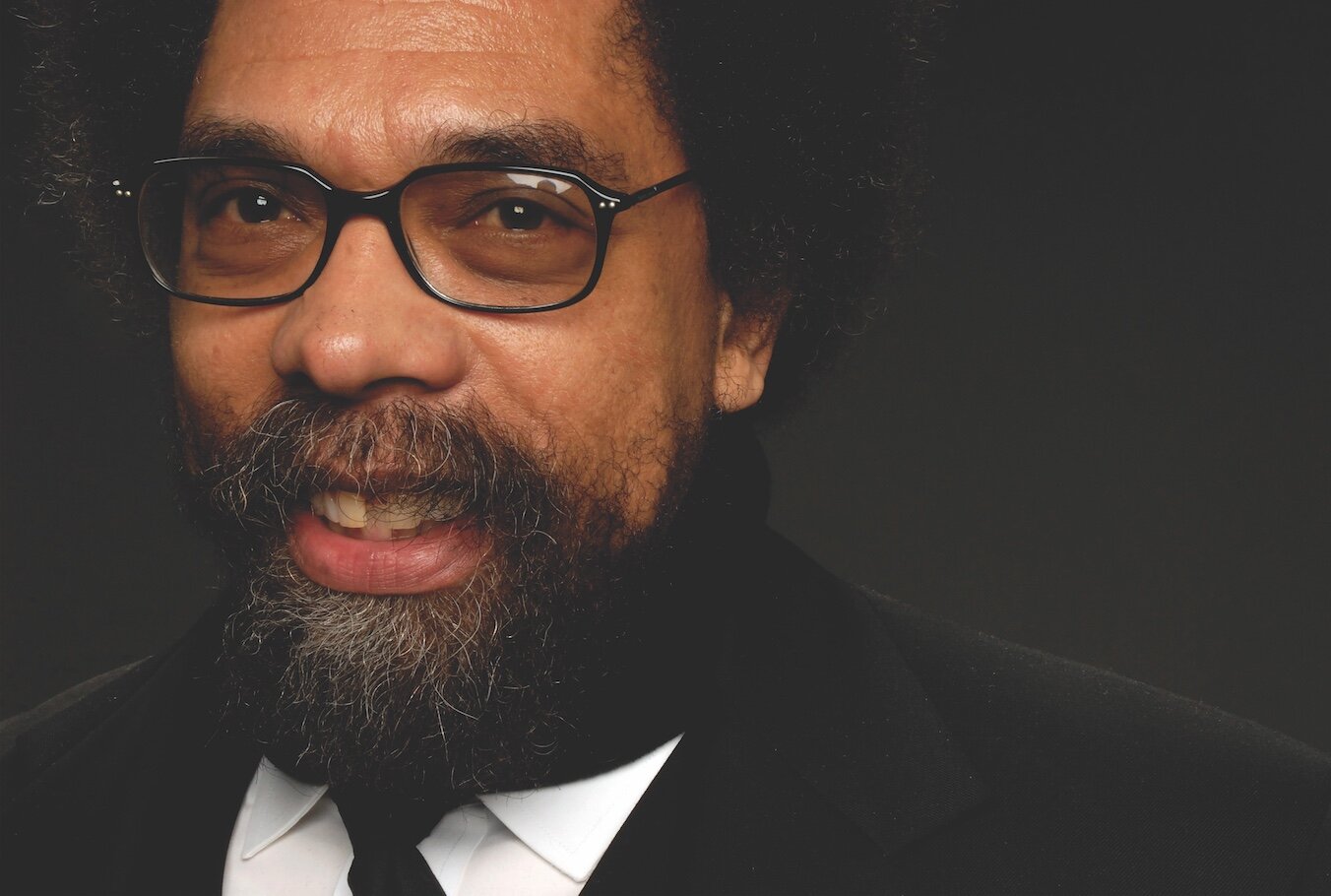
Cornel West
Professor of the Practice of Public Philosophy, Harvard University
Ashley Singh takes a look at Cornel West’s life and work, and gives recommendations for engaging with his speaking and writing.
Biography
Cornel West is a prominent and provocative democratic intellectual. He is Professor of the Practice of Public Philosophy at Harvard University and holds the title of Professor Emeritus at Princeton University. He has also taught at Union Theological Seminary, Yale, Harvard, and the University of Paris. Cornel West graduated Magna Cum Laude from Harvard in three years and obtained his M.A. and Ph.D. in Philosophy at Princeton.
He has written 20 books and has edited 13. He is best known for his classics, Race Matters and Democracy Matters, and for his memoir, Brother West: Living and Loving Out Loud. His most recent book, Black Prophetic Fire, offers an unflinching look at nineteenth and twentieth-century African American leaders and their visionary legacies.
In short, Cornel West has a passion to communicate to a vast variety of publics in order to keep alive the legacy of Martin Luther King, Jr. – a legacy of telling the truth and bearing witness to love and justice.
For more, see: http://www.cornelwest.com/
(cover image via Sactown Magazine)
Recommendation for easy engagement
Cornel West on George Floyd:
Interview on George Floyd and why protests are more of a turning point this time
Recent article by Cornel West:
A boot is crushing the neck of American democracy (the Guardian)
If you haven't listened to Cornel West speak, you're sorely missing out. His conversation with Joe Rogan for the comedian's very popular podcast is a great introduction.
Recommended philosophy paper
“How does philosophy relate to the Afro-American experience? This question arises primarily because of an antipathy to the ahistorical character of contemporary philosophy and the paucity of illuminating diachronic studies of the Afro-American Experience. I will try to show that certain philosophical techniques, derived from a particular conception of philosophy, can contribute to our understanding of the Afro-American experience. For lack of a better name, I shall call the application of these techniques to this experience, Afro-American philosophy. I will examine historical sources of these techniques and explore the way in which they underscore the feasibility of an Afro-American philosophy. Finally, I will attempt to show what results such a philosophy should yield.”
West talks us through developments upon the works of Heidegger and Wittgenstein - “both [philosophers] attempt to discover the human conventions concealed by the Cartesian perspective” - that can capture the Black experience. It’s no coincidence that the boundaries of Analytic philosophy, the dominant philosophy in the West, are policed to include and exclude certain things in what counts as philosophy - and the works of Heidegger and the later Wittgenstein are not considered to be ‘philosophy’ in the same way that Analytic philosophy ‘is’ philosophy.
One key insight is the combination of Heideggerian and Wittgenstinian ideas with John Dewey’s genealogical approach to philosophy that results for him in pragmatism.
“… For Dewey, the idea of an autonomous philosophy is culturally outmoded. It must submit to the fate of its first cousin, theology. Theology was once an autonomous discipline with its own distinct set of problems, now most of these problems lie at the mercy of psychology, sociology, history and anthropology. This is the path Cartesian philosophy (and its modern variants) must follow.
“But the normative function of philosophy remains. Philosophy becomes the critical expression of a culture, the critical thought of a society, the critical component of a discipline. It no longer contains delusions of autonomy nor illusions of disappearance. The historical hermeneutics of Heidegger and the cultural descriptions in Wittgenstein are combined with Dewey’s pragmatic orientation. Dewey’s metaphilosophical insight is: Philosophy is the interpretation of a people’s past for the purpose of solving specific problems presently confronting the cultural way of life from which the people come. For Dewey, philosophy is critical in that it constantly questions tacit assumptions and unarticulated presuppositions of previous interpretations of the past; it scrutinizes the norms these interpretations endorse, the solutions they offer and the self-images they foster.
“From the metaphilosophical insights of Heidegger, Wittgenstein and Dewey, I shall define Afro-American philosophy in this way: Afro-American philosophy is the interpretation of Afro-American history, highlighting the cultural heritage and political struggles, which provides desirable norms that should regulate responses to particular challenges present confronting Afro-Americans. Afro-American philosophy is the application of the philosophical techniques of interpretation and justification to the Afro-American experience…”
